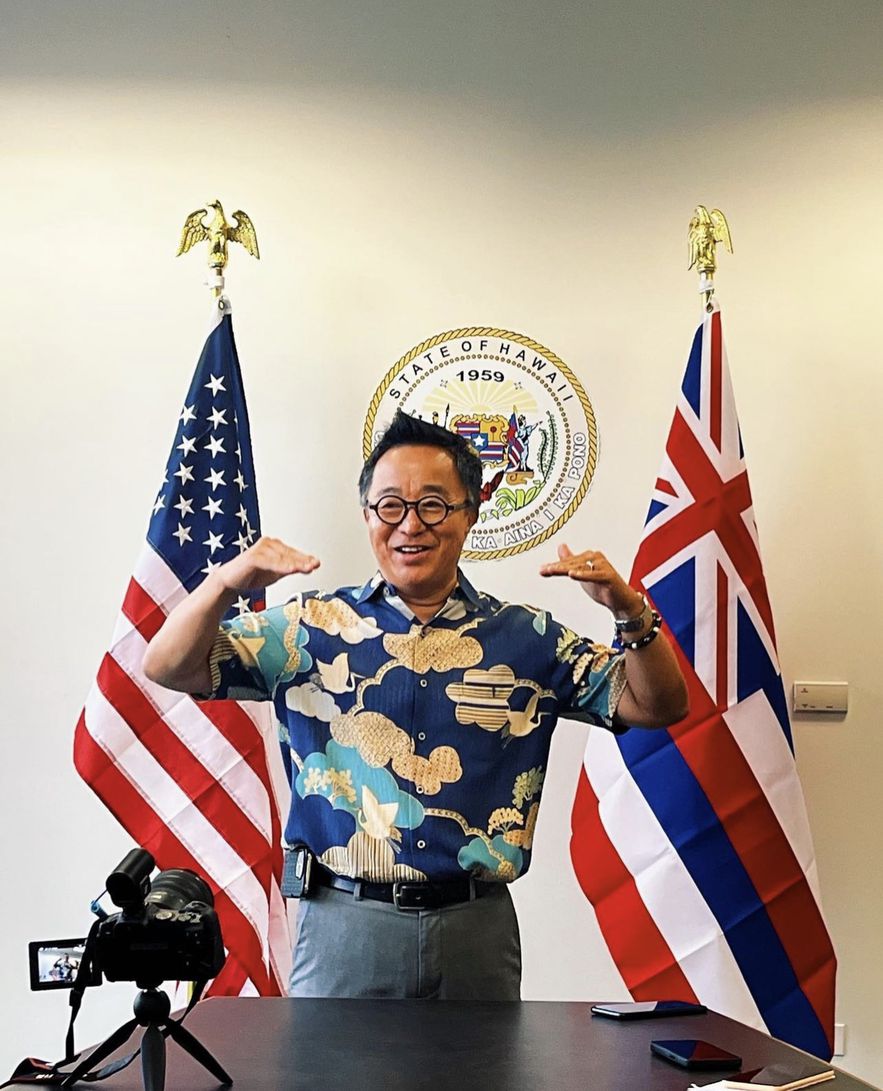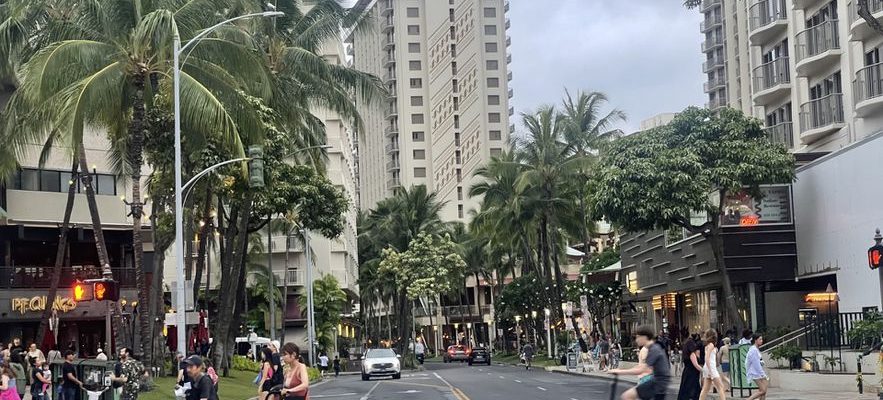First Hawaiian to win american idol – one of the most popular American shows, available in France under the name of New star –, Iam Tongi moved the whole of America from the height of his 18 years. In May, this overweight singer made his compatriots on the continent cry and filled the inhabitants of his archipelago with pride with his sensitive musical interpretation. When Lionel Richie, one of the jurors, immediately asked him why he had left Honolulu to settle in the rainy city of Seattle, the answer was: “Priced out of paradise!” Which roughly means: “Fired for lack of means.” And the Polynesian in flip-flops and Bermuda shorts began his chant by accompanying himself on the guitar.
In four words, the “new star” on that day shed light on an ignored problem: in Hawaii, the natives no longer have the means to live on their native land in the Pacific, 5 hours by plane from Los Angeles. “The average price of a home is $1 million, three times more than on the mainland,” said Pearl Harbor senator (of Japanese origin) Alfred Grace, who wears a flowered shirt. , the price of energy is, despite solar and wind power, three times higher than in the other 49 states. Food is also overpriced: in supermarkets, the price per gallon (3.78 liters ) of milk is around 8 dollars compared to 3 elsewhere in the country.”
And in the bars of Waikiki Beach, famous surf spot in Honolulu, a simple beer can reach 15 dollars! However, the average income of the 150,000 native Hawaiians, descendants of the kingdom of Hawaii founded in 1795 by Kamehameha the Great, annexed by the United States in 1893, is lower than the rest of the island population. To top it off, the volcanic archipelago with eight islands (Big Island, Oahu, Molokai, Maui, etc.) populated by 1.4 million inhabitants issues building permits in dribs and drabs.
housing crisis
This tropical but toxic cocktail resulted in a housing crisis. “Housing is so expensive that even married couples with two salaries are sometimes forced to share their accommodation with a sub-tenant,” remarks Shanna Robinson, a young employee of a research institute who, precisely, rents 1,400 dollars a small bedroom in an apartment occupied by middle-class newlyweds. Worse, in Hawaii the “salaried homeless” are far from rare. “Very close to my house, there is a waiter from Papa Johns Pizza who lives in his car”, adds the young woman who arrived in Honolulu five years ago. Incredible but true: in Hawaii, there are homeless workers who earn $3,000 a month but struggle to find accommodation in the many skyscrapers of the capital.
In Hawaii, inflation, the housing crisis and competition from Airbnb are forcing natives to leave the archipelago.
© / Axel Gylden / L’Express
The result is the exodus of the natives. Now, almost twice as many live on the continent (300,000), particularly in California (160,000) but also in Las Vegas, Nevada. Since the 1970s, “Sin City” – the “city of sin” – has been able to attract them to its casinos, with the help of charter flights. Over the past ten years, Clark County, where Las Vegas is located, has seen its Hawaiian population increase by 40% to a provisional figure of 22,000.
The “ninth island”
In the middle of the desert, the city of the game has received another nickname: the “ninth island” (of Hawaii). It is also here that the Council for Native Hawaiian Advancement conference was held in April, where global warming and the housing crisis were discussed.

Alfred Grace, elected, from the Democratic Party, to the senate of Hawaii
© / Dominic Giannini
The latter is further aggravated by tourist pressure: 10 million visitors – in particular 1.6 million Japanese who love the Hermès and Yves Saint Laurent boutiques on the chic thoroughfare of Waikiki Beach – succumb each year to the undeniable charm of ‘Hawaii where a certain Barack Obama was born sixty-two years ago. “There are 40,000 hotel rooms on the eight islands, but that’s not enough, continues Democratic Senator Alfred Grace. To meet demand, 21,000 accommodations are offered for rent on the Airbnb platform and escape to the natives of our little paradise.” Sad tropics.
